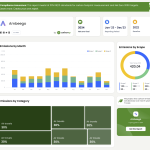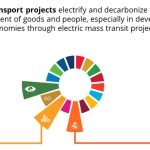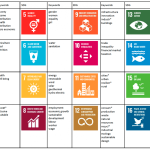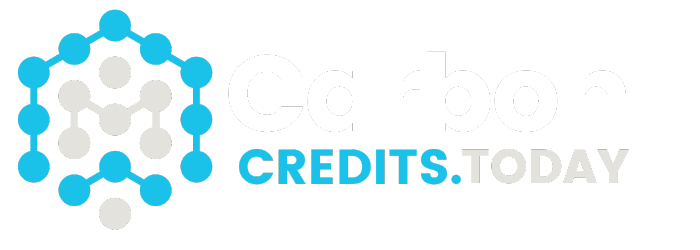Transitioning into a new field can be both challenging and rewarding, especially when leveraging existing expertise. For professionals with a background in the commodity sector and a passion for sustainability, pursuing a master’s degree in zero-carbon technology offers a unique opportunity to bridge the gap between traditional industries and emerging green solutions. This article explores actionable strategies to break into the zero-carbon technology field, highlighting how prior commodity experience can provide a competitive edge. From networking and skill-building to aligning academic pursuits with industry demands, discover how to position yourself as a valuable contributor in the rapidly evolving landscape of sustainable innovation.
- How to Transition into the Zero Carbon Tech Field with a Background in Commodities and a Master’s in Zero Carbon Technology
- Transitioning from Commodity Trading to Zero Carbon Technology: A Strategic Guide
- Leveraging Commodity Experience in Zero Carbon Technology
- How a Masters in Zero Carbon Tech Enhances Your Career Prospects
- Identifying Key Roles in the Zero Carbon Sector
- Building a Network in the Zero Carbon Industry
- Developing a Personal Brand in the Zero Carbon Field
- Navigating the Job Market with a Hybrid Skill Set
- Frequently Asked Questions (FAQ)
- How can my experience in the commodity field help me transition into zero carbon technology?
- What steps should I take to leverage my master's degree in zero carbon technology for a career in this field?
- How can I bridge the gap between my commodity field background and zero carbon technology during job applications?
- What roles in the zero carbon technology sector are most suitable for someone with my background?
How to Transition into the Zero Carbon Tech Field with a Background in Commodities and a Master’s in Zero Carbon Technology
1. Leveraging Your Commodity Field Experience
Your experience in the commodity field can be a significant asset when transitioning into zero carbon technology. The skills you’ve developed, such as market analysis, supply chain management, and risk assessment, are highly transferable. For example, understanding the dynamics of energy commodities like oil and gas can help you identify opportunities for renewable energy integration. Highlight these skills in your resume and interviews to demonstrate how your background aligns with the zero carbon tech industry.
| Skill from Commodity Field | Application in Zero Carbon Tech |
|---|---|
| Market Analysis | Assessing renewable energy market trends |
| Supply Chain Management | Optimizing green supply chains |
| Risk Assessment | Evaluating risks in carbon reduction projects |
2. Highlighting Your Master’s in Zero Carbon Technology
Your Master’s in Zero Carbon Technology is a strong foundation for breaking into this field. Emphasize the technical knowledge and innovative solutions you’ve gained during your studies. For instance, your understanding of carbon capture, energy storage systems, and sustainable energy policies can set you apart from other candidates. Use your academic projects and research to showcase your expertise and passion for sustainability.
See Also Feedback: Building a Tool to Easily Generate Your Carbon Offsetting Reports (PPN for UK)
Feedback: Building a Tool to Easily Generate Your Carbon Offsetting Reports (PPN for UK)| Academic Focus | Industry Relevance |
|---|---|
| Carbon Capture Technologies | Developing solutions for industrial emissions |
| Energy Storage Systems | Improving renewable energy reliability |
| Sustainable Energy Policies | Advising on regulatory frameworks |
3. Networking in the Zero Carbon Tech Industry
Building a strong professional network is crucial for transitioning into the zero carbon tech field. Attend industry conferences, join sustainability-focused organizations, and connect with professionals on platforms like LinkedIn. Networking can help you learn about job opportunities, gain insights into industry trends, and find mentors who can guide your career transition.
| Networking Strategy | Expected Outcome |
|---|---|
| Attend Industry Conferences | Learn about emerging technologies |
| Join Sustainability Organizations | Access exclusive job postings |
| Connect on LinkedIn | Build relationships with industry leaders |
4. Gaining Practical Experience Through Internships or Projects
To strengthen your profile, seek internships, freelance projects, or volunteer opportunities in the zero carbon tech sector. Practical experience will allow you to apply your academic knowledge and demonstrate your commitment to the field. Look for roles in renewable energy companies, sustainability consultancies, or research institutions.
| Opportunity Type | Benefits |
|---|---|
| Internships | Hands-on experience in the industry |
| Freelance Projects | Showcase problem-solving skills |
| Volunteer Work | Build a portfolio of impactful projects |
5. Tailoring Your Resume and Cover Letter for Zero Carbon Tech Roles
When applying for roles in the zero carbon tech field, customize your resume and cover letter to highlight relevant skills and experiences. Use keywords like sustainability, renewable energy, and carbon reduction to align with job descriptions. Provide specific examples of how your background in commodities and your Master’s in Zero Carbon Technology make you a strong candidate.
See Also Carbon Impact- How Do Corporations Measure Impact of Their Investments in Climate Projects for Carbon Credits?
Carbon Impact- How Do Corporations Measure Impact of Their Investments in Climate Projects for Carbon Credits?| Resume Section | Key Elements to Include |
|---|---|
| Professional Summary | Transitioning professional with expertise in commodities and zero carbon tech |
| Skills | Market analysis, carbon capture, renewable energy integration |
| Experience | Highlight transferable skills and relevant projects |
Transitioning from Commodity Trading to Zero Carbon Technology: A Strategic Guide
Leveraging Commodity Experience in Zero Carbon Technology
Transitioning from the commodity trading sector to zero carbon technology may seem like a significant shift, but your experience in commodities can be a valuable asset. The commodity field often involves understanding market dynamics, supply chains, and risk management, all of which are crucial in the zero carbon sector. For instance, your ability to analyze market trends and predict price fluctuations can be applied to the renewable energy market, where understanding energy pricing and demand forecasting is essential. Additionally, your experience in negotiating contracts and managing stakeholder relationships can be directly transferred to roles in project management or business development within the zero carbon industry. By highlighting these transferable skills, you can position yourself as a strong candidate for roles that require both technical knowledge and business acumen.
How a Masters in Zero Carbon Tech Enhances Your Career Prospects
Pursuing a Masters in Zero Carbon Technology is a strategic move that can significantly enhance your career prospects in this rapidly growing field. This advanced degree provides you with specialized knowledge in areas such as renewable energy systems, carbon capture technologies, and sustainable energy policies. It also equips you with the technical expertise needed to understand and implement innovative solutions for reducing carbon emissions. Furthermore, the program often includes hands-on projects and industry collaborations, which can help you build a professional network and gain practical experience. By combining your academic achievements with your industry experience, you can demonstrate to potential employers that you have both the theoretical foundation and the practical skills needed to excel in the zero carbon sector.
Identifying Key Roles in the Zero Carbon Sector
The zero carbon sector offers a wide range of career opportunities, and identifying the right role for you is crucial. Some of the key roles in this field include energy analysts, sustainability consultants, project managers, policy advisors, and research scientists. Each of these roles requires a unique set of skills and expertise. For example, as an energy analyst, you would be responsible for analyzing energy data, forecasting market trends, and developing strategies for reducing carbon emissions. On the other hand, a sustainability consultant might focus on advising organizations on how to implement sustainable practices and reduce their environmental impact. By understanding the specific requirements of each role, you can tailor your job search and skill development to align with your career goals.
See Also Research for Master Thesis: How Hard Is It to Qualify Project for Additional SDG Impact?
Research for Master Thesis: How Hard Is It to Qualify Project for Additional SDG Impact?Building a Network in the Zero Carbon Industry
Building a professional network is essential for breaking into the zero carbon sector. Networking can help you learn about job opportunities, gain insights into industry trends, and connect with professionals who can offer guidance and support. There are several ways to build your network, including attending industry conferences, joining professional associations, and participating in online forums. Additionally, your Masters program can be a valuable resource for networking, as it often provides opportunities to interact with industry experts, alumni, and peers. By actively engaging in these networking activities, you can increase your visibility in the industry and build meaningful connections that can help you advance your career.
Developing a Personal Brand in the Zero Carbon Field
Developing a personal brand is an important step in establishing yourself as a thought leader in the zero carbon field. Your personal brand reflects your professional identity and communicates your values, expertise, and unique perspective to potential employers and colleagues. To build your personal brand, consider creating a professional online presence through platforms like LinkedIn, where you can share industry insights, publish articles, and engage with others in the field. Additionally, you can participate in public speaking events, write for industry publications, and contribute to research projects. By consistently demonstrating your knowledge and passion for zero carbon technology, you can establish yourself as a credible and influential figure in the industry.
Navigating the job market with a hybrid skill set that combines commodity trading experience and zero carbon technology expertise can be a competitive advantage. Employers in the zero carbon sector are increasingly looking for candidates who can bring diverse perspectives and cross-functional skills to the table. Your ability to bridge the gap between traditional energy markets and emerging technologies can make you a valuable asset to organizations that are transitioning to sustainable energy solutions. To effectively navigate the job market, consider tailoring your resume to highlight your transferable skills and relevant experience. Additionally, be prepared to articulate how your unique background can contribute to the success of the organization during job interviews. By positioning yourself as a versatile and adaptable professional, you can increase your chances of securing a role in the zero carbon sector.
Frequently Asked Questions (FAQ)
How can my experience in the commodity field help me transition into zero carbon technology?
Your experience in the commodity field can be a significant asset when transitioning into zero carbon technology. The commodity sector often involves understanding supply chains, resource management, and market dynamics, which are also critical in the zero carbon industry. For example, your knowledge of energy commodities like oil, gas, or metals can provide a foundation for understanding renewable energy sources and their integration into existing systems. Additionally, skills in data analysis, project management, and stakeholder engagement are transferable and highly valued in the zero carbon sector. Highlighting these skills in your resume and interviews can demonstrate your ability to adapt and contribute effectively to this emerging field.
What steps should I take to leverage my master's degree in zero carbon technology for a career in this field?
To leverage your master's degree in zero carbon technology, focus on building a strong professional network and gaining practical experience. Attend industry conferences, webinars, and workshops to connect with professionals and stay updated on the latest trends. Consider internships, research projects, or part-time roles in renewable energy companies, sustainability consultancies, or government agencies to gain hands-on experience. Additionally, tailor your academic projects to address real-world challenges in the zero carbon sector, as this can serve as a portfolio to showcase your expertise. Finally, obtain relevant certifications, such as in carbon accounting or renewable energy systems, to further enhance your qualifications.
How can I bridge the gap between my commodity field background and zero carbon technology during job applications?
Bridging the gap between your commodity field background and zero carbon technology requires emphasizing transferable skills and demonstrating your commitment to sustainability. In your resume and cover letter, highlight how your experience in resource management, logistics, or market analysis aligns with the needs of the zero carbon sector. Use specific examples, such as projects where you improved efficiency or reduced environmental impact. Additionally, explain how your master's program has equipped you with technical knowledge in renewable energy, carbon reduction strategies, or sustainable development. Employers value candidates who can connect their past experiences to future contributions in the zero carbon field.
What roles in the zero carbon technology sector are most suitable for someone with my background?
With your background in the commodity field and ongoing master's in zero carbon technology, several roles could be a great fit. Positions in sustainability consulting, renewable energy project management, or carbon trading align well with your expertise. For example, as a sustainability consultant, you could help companies reduce their carbon footprint by leveraging your understanding of resource management. Alternatively, roles in renewable energy project management would allow you to oversee the development and implementation of clean energy solutions. Additionally, your knowledge of commodity markets could be valuable in carbon trading or energy transition strategy roles, where understanding market dynamics is crucial.
Leave a Reply


Our Recommended Articles